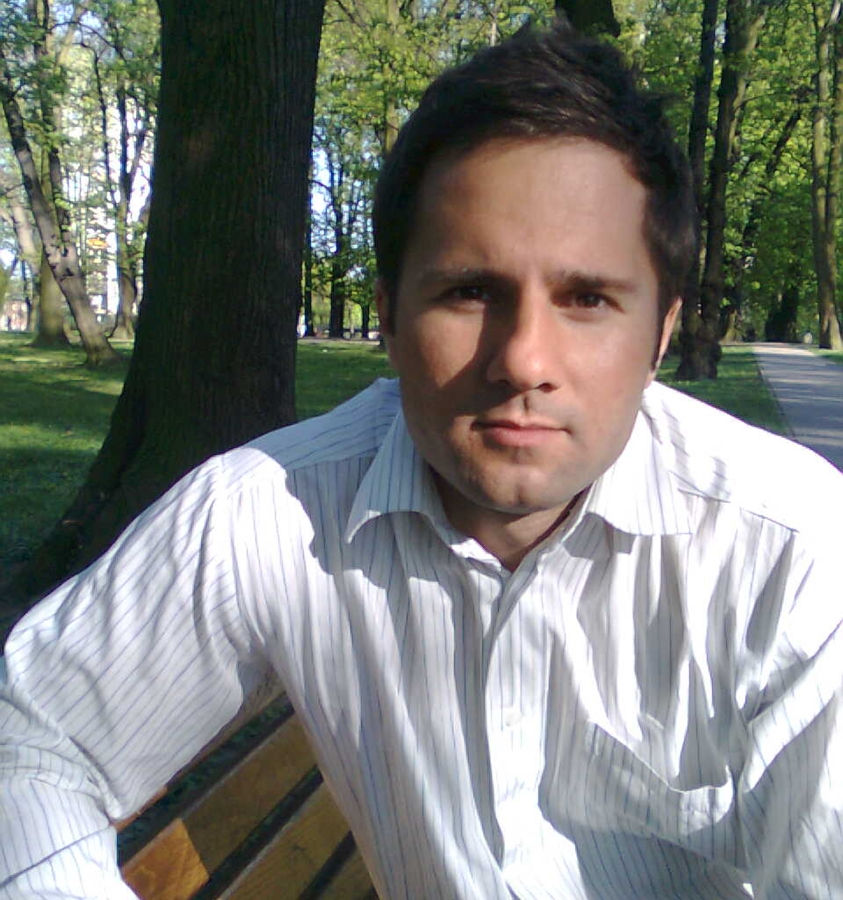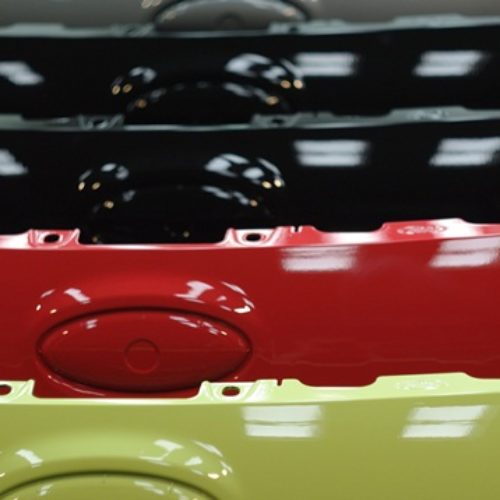The global economic crisis that took its toll on the world automotive sector, did not spare the Swedish parental company Plastal Holding AB. In March 2009 the company was declared insolvent, which caused problems for its subsidiaries in other European countries, such as Poland.
After declaring insolvency, Plastal Poland did not cease commercial activity. On the contrary, the company, managed by the liquidator, was working on all cylinders and even recorded some profits. About one year later, the insolvency proceedings became composition proceedings and the healthy company is currently seeking a new investor.
Reverse consolidation
One of the major challenges connected with the change in the ownership structure and the process of regaining the financial health of the company, was becoming fully independent from the former owner including the area of IT systems and solutions. Plastal had been using a SAP system which was physically located on a corporate platform in Italy.

Sławomir Spyt, Project Manager in Plastal
Organisational changes in the company have generated a need for a system dedicated for Polish companies to be singled out of the corporate SAP system, from the corporate SAP system „Earlier, two fellow subsidiaries – Polish and Italian company codes – functioned in SAP within one client. In the case of our company, this approach had several disadvantages. Suffice to say, the lack of autonomy, restrictions on development, the difficulty reconciling two different legal systems, and the management of the business-accounting processes” – commented Sławomir Spyt, Project Manager in Plastal.
Business continuity and system safety
„We had to plan the migration in a way which guaranteed maximum safety. ERP system being unavailable is unacceptable for the automotive sector, as it may lead to downtime in production or disruption in customer deliveries. The migration project was difficult, as it resembled an operation on a living organism. We should not forget that most processes in the automotive sector are performed on a “just-in-time” basis. It was also necessary to coordinate the work of three teams: the Italian consultants, the BCC consultants and our own team of key SAP users” – said Sławomir Spyt
The migration project resembled an operation on a living organism. We should not forget that most processes in the automotive sector are performed on a “just-in-time” basis
The allocation of the system for Plastal (Polish company) involved another challenge. The “new” system had to be placed in a safe data center and needed professional administration. The company in Gliwice, on the basis of the earlier experiences and the results of the analysis of the offers and abilities of the companies that would provide the appropriate level of system safety and stability, decided to make use of the hosting and SAP system administration services offered by the BCC (now All for One Poland) Outsourcing Center.
„We needed a solution that would provide us with our own SAP system, without having to make additional investments in the platform. We wanted the solution to bring the system efficiency back to the required level and enable cost reduction. Moreover, it would not hinder our future development. This was part of the reason we decided to choose BCC outsourcing services” – added Sławomir Spyt.
Plastal manufactures plastic car components – bumpers, spoilers, upholstery components etc. for different cars produced in factories located in Poland and many other European countries. Due to short time frames for order fulfillment, high quality criteria and delivery time requirements, an efficient and reliable ERP system is a key element of ensuring business continuity.
From Italy to Poland
The insolvency of the Plastal group have generated a need for a system dedicated for Polish companies to be singled out of the corporate SAP system from the Italian central SAP system. „Paradoxically, the insolvency accelerated the already planned migration project, which meant a lot of work for us” – commented Sławomir Spyt
Business requirements connected mostly with a possible period of system unavailability and reducing the risk of the project that is being carried out, as well as the complex IT architecture consisting of many integrated systems and a large database were the reason for dividing the migration project into several steps.
„In the first step, we cooperated with Italian consultants. It consisted in separating the Polish company code and moving it to a new system, the initiation of the new FTP Connection with all counterparties and the reconnection of the EDI flows to our Business Connector in Gliwice. The execution of this step also required a reconfiguration of the interfaces handling business processes between the central SAP system and the satellite systems.
The second step consisted in moving the already separated system from Italy to Poland. For safety reasons, we insisted that the system should be initially moved to a platform of the same operating system and database as in the source environment. After several weeks of a stable functioning system, BCC started the last step of the project – the migration of the SAP, already at work in the BCC Outsourcing Center on a new hardware platform, and changing the operating system platform. After several weeks of preparation, the migration was performed during one of the weekends in August” – that is how Sławomir Spyt describes the migration.
Intermediate step
A hardware platform was prepared in the BCC (now All for One Poland) Outsourcing Center, similar to the platform, on which the central SAP system of the Plastal group had been running. BCC Network engineers ensured the new server’s communication on the premises of Plastal in Poland and the satellite systems.
For the duration of the execution of the works, the satellite systems used in Poland had to be stopped. Plastal administrators also disabled the source SAP system for the users. The outsourcing company administrating the central system in Italy prepared a safety backup of the system that was instantly taken to the BCC Outsourcing Center.
The process of restoring the SAP system did not amount to the creation of SAP binaries and the database from the backup. Before restoring the system, a reconfiguration of the source operating system – which had not been available to the BCC consultants – was performed. The scripts used in Plastal for the interface communication at the level of the operating system, also required adjustment.
All of the above configurations were performed on a continuous basis and the 1.3 TB database was available only a few hours after starting the restoration process.
After adjusting the language configurations and technical parameters of the new SAP ERP, the system was made available to the team of experienced key users of Plastal in Poland for verification. Next, all system interfaces were started and the configurations necessary for all functionalities, including those based on the interfaces to external systems, were performed. All the problems encountered in the process of adding the functionalities were solved, so the decision was made to go live with the new solution.
After making the system available to the end users in Plastal Polska, no problems with SAP were reported. Plastal Key users, who had an excellent working knowledge of the system, prepared detailed business test scenarios and a common technical reconfiguration (including the copied SAP system and satellite systems) made the system migration fully transparent for end users.
In the next step, a test/development environment of the SAP system was created and started.
We are raising our game
The formerly used hardware platform required downtime – for example in the case of replacing sever components our priority, when executing the migration process to the target configuration, was minimizing the risk and the SAP system downtime. Hence, a decision was made that ultimately, the Plastal system would be migrated to the BCC-delivered high availability platform – safer and more efficient than the solution used earlier.
Changing the platform required performing a set of tests and had to be executed by competent and experienced consultants. The process of making a copy of exporting/importing data from the source system requires detailed testing at the technical level. In the case of such a large database – over 1.3 TB – extraordinary diligence was necessary to perform the operation smoothly.
It’s worth noting that, according to the SAP safety requirements, the consultants should have sufficient competence confirmed by a special SAP OS/DB Migration certificate. All the base consultants of the BCC Outsourcing Center have these certificates.
First a test system was migrated to the new hardware platform. In order to optimize the data transmission time, a decision was made to simultaneously export and import the data. This technique is rarely used for such projects. Using it makes it possible to cut the duration of the longest step in the migration by half, compared to standard methods, where the database is exported to a shared location, and then, when the export is complete, imported to the new SAP system.
In order to optimize the data transmission time, a decision was made to simultaneously export and import the data. It made it possible to cut the duration of the longest step of the migration by half, compared to standard methods
On the basis of the test system migration, a detailed technical migration plan was developed for the productive system. Two migrations were performed here, in accordance with SAP AG recommendations:
- test migration of the productive system;
- productive migration of the productive system.
The system migrated as part of the test was disconnected (technically) from the satellite systems and made available to Plastal key users for testing. After successful tests, the previously checked test migration plan for the productive migration was confirmed with the Plastal project manager.
In order to avoid downtime (required for correcting previously identified and diagnosed problems in SAP) during the productive migration process, the monitoring system used in BCC Outsourcing Center was configured to send an SMS notifying the administrators that a problem had occurred, right after the event. Thus, information on each problem is delivered to the consultants no later than a minute after the occurrence. After another several minutes the problem was solved.
Accurate monitoring of the migration and optimization in the scope of data base fine tuning enables the system to be released for testing three hours before the deadline for work completion. The immediate benefit of accelerating the process was gaining additional time for running all test scenarios by the Plastal key users. Next all the interfaces were started up, which confirmed that they were operating properly – in both the technical and application layers.
Earlier, the average SAP response time was about 3 seconds. Now, the response time of the same system is shorter by half a second
The preparation of the hardware platform in the All for One Data Center and Development for the detailed migration and the test scenarios to ensure the accuracy of the migration Process, took several weeks. The short time frames of the migration – only two days – were the result of business requirements. In a company that contracts deliveries and with goods invoiced on a „just-in-time” basis, longer system unavailability was unacceptable.
Performing the migration in such a short time was possible thanks to dedicated tools configured specially for executing the process in Plastal. One of the keys to the project’s success was also the competence (not restricted to SAP environments) of the BCC consultants carrying out the project, the professional governance over the process by the Plastal Project Manager, and the competence of the key system users.
Six times faster
The days following the migration confirmed that the tests and the entire migration process have been executed professionally and in accordance with expectations. The users are satisfied with the quality of the “new” SAP productive system, and the daily operations run smoothly. There is only one aspect of the project noticed by the users – a shorter system response time. Earlier, the average SAP response time was about 3 seconds. Now, the response time of the same system is shorter by half a second.
A company’s nervous system
SAP ERP can be compared to the nervous system of a company, where all external and internal activities are managed. In my opinion, becoming fully independent in the area of IT Solution was necessary not only from a business point of view, but also for purely practical reasons. SAP migration enabled some of our internal processes to be restructured.
Not only has the system become more efficient, but the business processes executed with it meet the specificity of Plastal Polska . In addition, the employees who participated in the project have acquired additional knowledge of the system, and the users have gained more freedom in their daily work. While internally SAP serves as the nervous system, externally it should be perceived as a company communicator.
Efficient and effective SAP ERP enables us to manage the company efficiently and transparently and meet the expectations of our collaborators in the scope of quality and timeliness of deliveries.
Sebastian Madej, Director of Plastal Polska
Plastal Poland has been in Gliwice for 10 years, its premises are located in the Katowice Special Economic Zone. It also has two production plants in Swarzędz and Poznań. The company was founded as a subsidiary of a Swedish industrial group – Plastal Holding AB. The company, which employs over 700 people, manufactures plastic car components, such as bumpers, spoilers, car cockpits, plastic upholstery components; threshold covers etc., for cars manufactured by the largest world manufacturers, such as: Fiat, GM, VW, Ford, Audi, BMW, Mini and Jaguar.



